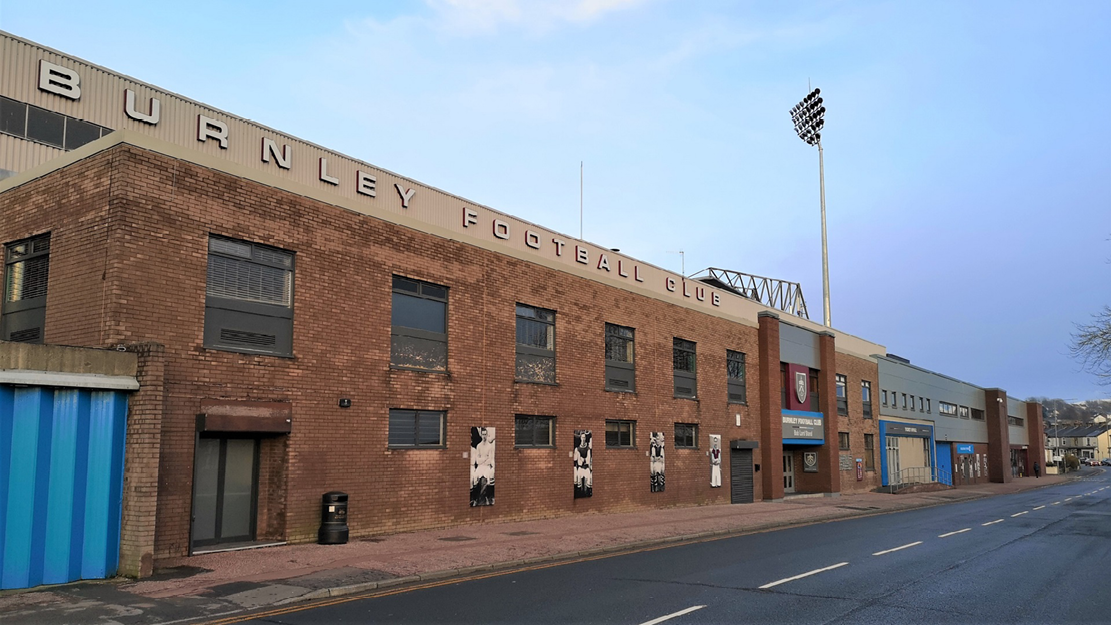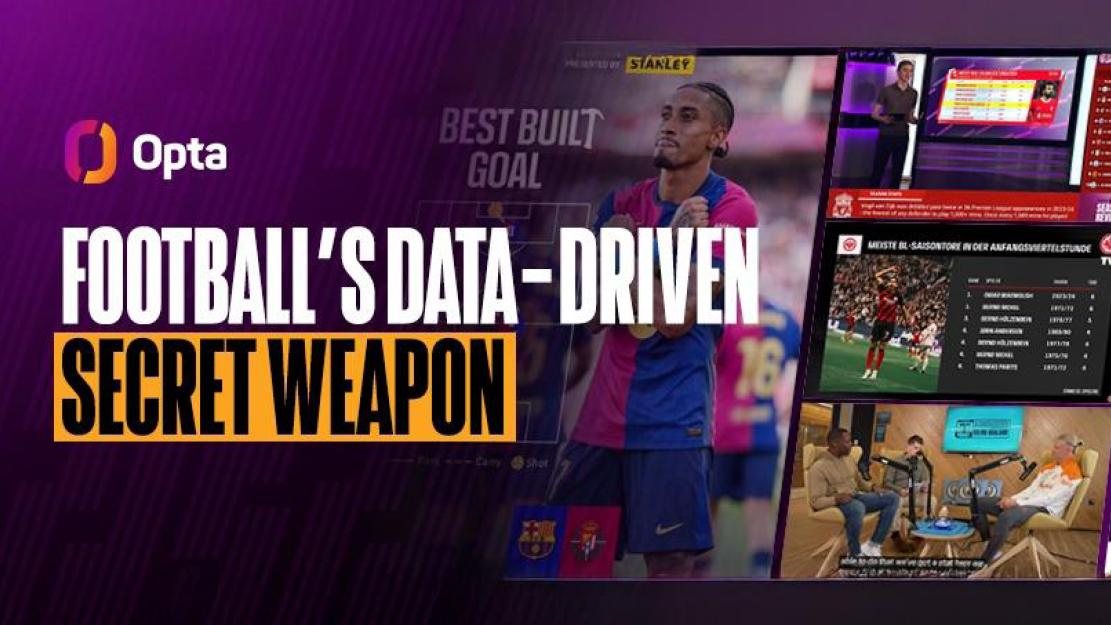Burnley Football Club was established in 1882 and was a founder member of the English Football League.
The Club is located in an east Lancashire town in the Pennine hills of northern England. It is an area rich in football heritage with clubs such as Blackburn Rovers, Bolton Wanderers, Preston North End located nearby and, slightly further away, the United and City of Manchester. Whilst Burnley is a relatively small town of 90,000 inhabitants, the average attendance at games is 20,000 and with a fan base that stretches well beyond the town‘s borders. The club has tremendous heritage, with it being champions of England in 1960, an era that saw Burnley attract a following of people then, and subsequently their children and grandchildren.
Burnley played in the European Cup in 1961 and lost to Hamburger SV in the quarter-finals. In 1966, Burnley reached the quarter finals of the UEFA Cup and were beaten by Eintracht Frankfurt.
More recently, Burnley have developed a reputation as a well-run club now in their 5th consecutive season in the English Premier League, with a peak finish of seventh in 2018 which saw them qualify for the Europa League.
The Transaction
ALK Capital, via an English special purpose vehicle company, acquired 83.97% of Burnley FC Holdings Limited from existing shareholders. The purchase was part-funded by equity investment and also by debt. MSD Capital, a private investment firm established in 1998 to manage the assets of US technology magnate Michael Dell and his family, provided the debt funding. MSD is familiar with football finance as it has provided debt in relation to three other English football clubs – Derby County FC, Southampton FC and Sunderland AFC . Their involvement is indicative of the growing number of alternative forms of finance available within professional sport.
In any football club takeover, there are multiple stakeholders to take into account and unusual factors. In this transaction there were multiple selling shareholders and also a wide range of remaining shareholders, many only holding very few shares as fans, MSD as lender, our client ALK as purchaser and the English Premier League as regulator. The sale of any club also attracts considerable media attention. It impacts on the employees, players, management, and, of course, the fans, as important stakeholders in a club.
This was a high profile transaction in any event, even more so given it is the first major acquisition of an English Premier League side by external investors in almost five years and one of the most significant corporate projects within European sport in 2020.
Unlike a „normal“ corporate transaction, an acquisition of a football club necessitated obtaining the approval of the English Premier League, without which the deal could not go ahead. The EPL, as regulator of the football clubs in the Premier League, have strict criteria regarding the suitability and sustainability of ownership which if not satisfied can lead to a transaction collapsing. It was widely reported that the proposed takeover of Newcastle United, another English Premier League club, fell through in July 2020 because the EPL were not going to approve the deal. That is the subject of on-going litigation. Any new owner needs to also demonstrate to the EPL that it has a strong and comprehensive plan for the football club and evidence a sustainable long term future for it.
Our client also had to contend with external factors weighing heavily on the sporting landscape – this whole transaction was negotiated and concluded whilst the Covid-19 pandemic raged. The pandemic has impacted every business but even more so those within the sports sector. For a football club the impact on revenues has been significant. There was considerable uncertainty around many aspects of the business – for example, a lack of clarity as to if and when crowds would be allowed back into stadia, whether the 2020 – 21 football season would be completed uninterrupted and without suspension as a second and then a third lockdown was announced in England and how this would impact on commercial revenue streams. Meanwhile the team had struggled to replicate the form of previous seasons and were consistently toward the bottom of the EPL.
Even so, with considerable effort from all involved, the deal completed late on 30 December 2020 and was announced on New Year’s Eve. With subsequent wins against Liverpool FC and Aston Villa FC, the club has moved up the league and impressed with the vision set out by the new owners.
Plans for the Future
ALK Capital‘s plans for Burnley may be summed up as ‚continuity and change‘, a plan of preserving and enhancing .
New Chairman, Alan Pace, has consistently acknowledged Burnley‘s important role as a community football club and the role of all stakeholders within it. Highlighting the contribution of manager Sean Dyche, the new owners have emphasised the importance of maintaining the prudent approach together with support for investment in developing the playing squad. Unlike many other overseas investors, ALK’s executive are committed to living in and being part of the local community.
Areas where ALK have stated they will accelerate change include in technology. ALK hold a stake in two sport-tech companies, which they will look to deploy to assist Burnley. The club has already stated it will use the technology to help identify players for the future. They will also look to follow other EPL teams and have a partnership with overseas clubs. Burnley are also embracing e-Sports as a way of growing the club‘s international profile. More recently, Burnley have announced that they are professionalising the women‘s football team, a move that received universal support.
We are proud to have supported ALK and to have worked on such an important corporate transaction, not just for the business of sport but for the club and its community. As a purpose led business it was also great for our to work with a client with a similar approached. Our view is that ALK‘s approach and vision is one that is likely to shape how others develop investment plans. By making gradual but meaningful change, as opposed to ripping up everything that has gone before, it will likely become a blueprint for others.
Our role – Pinsent Masons
This type of acquisition and financing is something we have had vast experience of advising on over the last 20 years. We are proud to have a market leading global sports advisory team. Covering all disciplines within sport, media and entertainment, our work extends to advising on takeovers and financings within most European football leagues. By bringing together our sports expertise with strong local resource, it helped to move the transaction through to completion as smoothly as is possible where the purchase of a sports club in a global pandemic is concerned!
The team was led by Trevor Watkins, Pinsent Masons‘ global head of Sport. Trevor brought years of experience to the transaction, including his personal leadership of the acquisition of AFC Bournemouth – which was particularly important in relation to ALK‘s engagement with the EPL. Trevor guided ALK through the regulatory process, and also brought his strategic experience as a former football club chairman and advisor on multiple deals to the transaction as a whole.
We deployed an expert team of over 20 lawyers from our offices in the north of England, led by Ben Proctor on the corporate side and Matthew Clayton-Stead on financing. ALK also retained BDO, as financial advisors and CSM as press relations. Lead counsel for the sellers were the Leeds based firm of Walker Morris. The ability to combine legal excellence with detailed practical experience of working within the business of sport is what we believe sets us apart, both in England and across our offices globally.
This article was originally published in the FBIN Magazine 22. Get the full issue as PDF or get your digital subscription.
By the FBIN Network member Pinsent Masons.
Pinsent Masons England
Trevor Watkins – trevor.watkins@pinsentmasons.com
Pinsent Masons Germany
Daniel Erd – daniel.erd@pinsentmasons.com
Photo by: Trappedinburnley-CC BY-SA 4.0


 Upgrade to Premium Now
Upgrade to Premium Now






